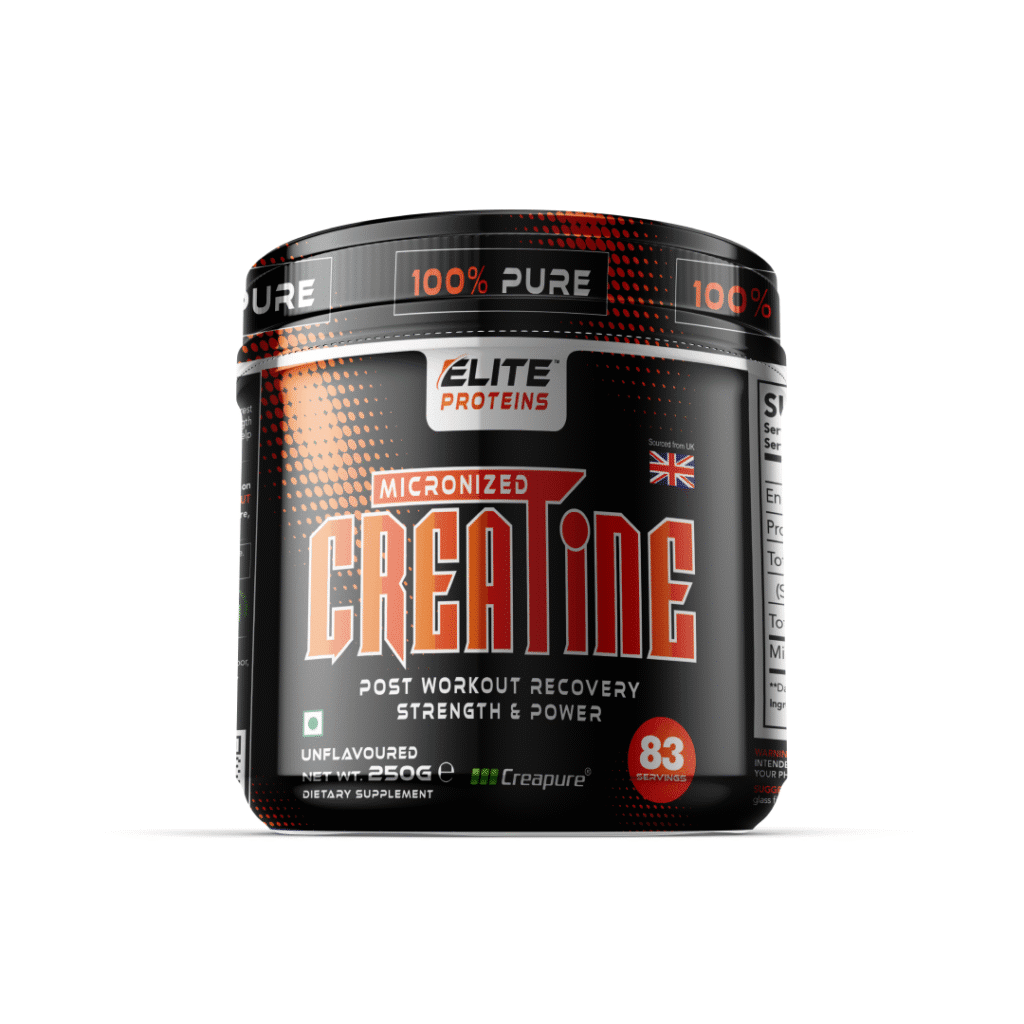How Creatine Helps: Benefits, Science & Usage
When it comes to performance supplements, creatine stands out as one of the most researched, effective, and trusted choices available. Whether you’re a seasoned athlete, a weekend warrior, or simply looking to improve your health, creatine offers multiple benefits beyond just muscle growth.
In this blog, we’ll break down how creatine helps your body, brain, and performance — backed by science and practical usage tips.
What Is Creatine?
Creatine is a naturally occurring compound found primarily in your muscles and brain. It’s made from three amino acids: arginine, glycine, and methionine. While your body produces creatine in the liver, kidneys, and pancreas, it’s also available through food — especially red meat and fish.
However, the amount of creatine from food is relatively low. That’s where creatine supplementation comes into play, offering a simple way to increase your muscle stores.
💡 Did You Know? Around 95% of your body’s creatine is stored in muscle tissue, where it plays a critical role in energy production during high-intensity exercise.
How Creatine Helps Your Body
1. Boosts Exercise Performance
Creatine helps regenerate adenosine triphosphate (ATP) — your body’s primary energy source during short bursts of intense activity, like sprinting or lifting weights.
Benefits:
- Increases strength and power output
- Enhances sprint performance
- Delays fatigue during high-intensity workouts
📖 Related Reading: Check out our complete guide to strength training for beginners to pair with your creatine intake.
2. Promotes Muscle Growth
One of the most well-known effects of creatine is its ability to support muscle hypertrophy (growth).
According to a meta-analysis published in the Journal of the International Society of Sports Nutrition, creatine significantly increases lean body mass and training outcomes compared to placebo groups. Source
How It Works:
- Increases workload capacity during resistance training
- Enhances cell volumization (muscles look fuller)
- Improves protein synthesis indirectly through higher training volume
3. Supports Recovery
Creatine doesn’t just help you push harder — it also helps you bounce back faster.
Key Recovery Benefits:
- Reduces muscle cell damage and inflammation
- Helps replenish glycogen stores more efficiently
- May lower post-exercise muscle soreness (DOMS)
Incorporating creatine into your post-workout routine along with a protein shake can maximize your recovery. Learn more about recovery nutrition in our post-workout shake guide.
How Creatine Helps the Brain
Believe it or not, the benefits of creatine extend beyond your muscles.
4. Cognitive Performance
The brain, just like your muscles, requires a lot of ATP. Supplementing with creatine can improve mental fatigue resistance, especially during stressful tasks or sleep deprivation.
A study from Psychopharmacology found that creatine improved working memory and intelligence test performance in healthy young adults. View Study
5. Neurological Protection
Early research suggests that creatine may offer neuroprotective benefits and may be helpful in managing conditions like:
- Parkinson’s Disease
- Alzheimer’s Disease
- Depression and Anxiety
While more human trials are needed, the early data is promising and expands the potential of creatine far beyond athletic performance.
Who Should Use Creatine?
Creatine isn’t just for bodybuilders. how creatine helps:
- Athletes and gym-goers
- Older adults looking to preserve muscle and cognition
- Vegans and vegetarians, who get less creatine from food
- Students or professionals dealing with mental fatigue
- Creatine for muscle growth
creatine benefits
Whether you’re lifting weights or managing a busy schedule, creatine can be a valuable tool in your supplement routine.
How to Use Creatine: Dosage & Timing
The most common and researched form is creatine monohydrate. It’s affordable, safe, and effective.
Recommended Dosage:
- Loading Phase (Optional): 20g/day (split into 4 doses) for 5-7 days
- Maintenance: 3–5g/day
You can mix creatine with water, juice, or your protein shake. Timing isn’t critical — what matters most is consistency.
💡 Pro Tip: creatine benefits
Taking creatine post-workout with carbs and protein may help absorption due to increased insulin sensitivity.
Is Creatine Safe?
Yes. Creatine is one of the most studied supplements in history, with hundreds of peer-reviewed papers supporting its safety and effectiveness.
Common Myths Debunked:
- Myth: Creatine damages the kidneys
Fact: Research shows no harm in healthy individuals. - Myth: Creatine causes dehydration
Fact: It may actually support hydration by pulling water into muscle cells.
As with any supplement, consult your doctor if you have pre-existing conditions.

Choosing the Right Creatine Supplement
Not all creatine is created equal. Look for creatine monohydrate with Creapure® certification for purity and quality.
We recommend trying EliteProteins Creatine Monohydrate — formulated for maximum absorption and lab-tested for purity.
Final Thoughts: Is Creatine Worth It?
Absolutely. Whether you’re focused on athletic performance, muscle building, cognitive enhancement, or aging well, creatine offers a wide array of science-backed benefits.
To summarize:
✅ Enhances physical performance
✅ Supports muscle growth and recovery
✅ Improves brain function and mental fatigue
✅ Safe and effective for long-term use
In a world full of overhyped supplements, creatine continues to deliver real results.
FAQs
Q: Can I take creatine every day?
A: Yes! Daily use is recommended for maintaining elevated muscle creatine stores.
Q: Is creatine only for men?
A: Not at all. Women can benefit just as much, especially in strength, power, and brain health.
Q: Do I need to cycle creatine?
A: There’s no need to cycle. Continuous use is both safe and effective.
Want More?
If you found this guide helpful, check out our other popular articles:
For exclusive deals and fitness tips, subscribe to our newsletter. to know more creatine benefits and other supplements.
Sources:
This blog is for informational purposes only and does not replace medical advice. Always consult with a healthcare provider before starting any supplement.



